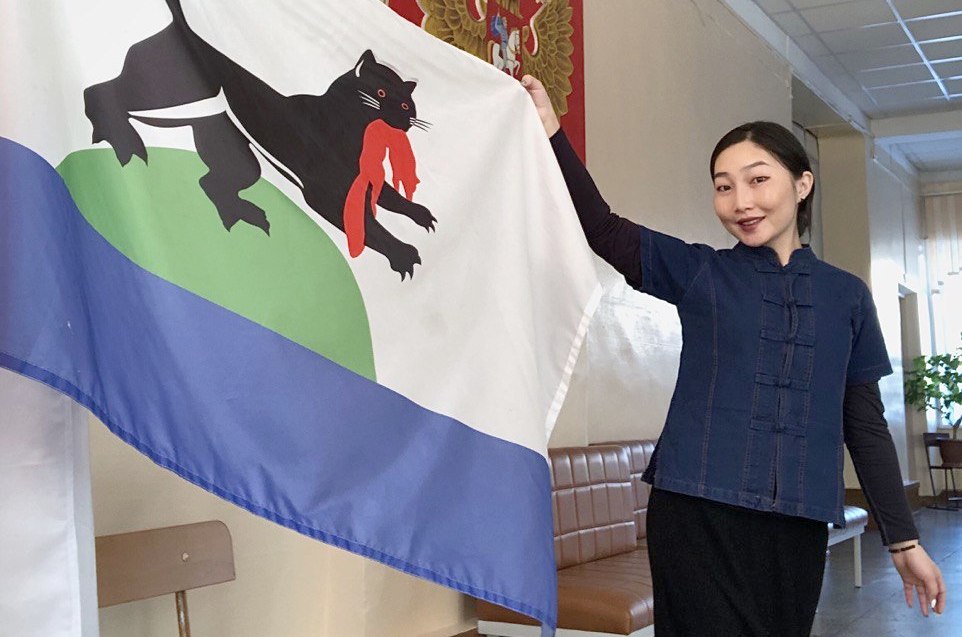What is a language to you? Most likely it’s a tool to speak and to write, we do not often think about its diversity and greatness, and we attempt to master it even less often. But there are those among us who have a creative impulse and they reveal their potential immersing in systems of signs, rules, and sentence construction. One of these people is Demberelbanzai Enkhjargal, a fourth-year student of the ISU Pedagogical Institute, studying within the quota established by the Government of the Russian Federation for foreign citizens. In this short interview we will get to know her and find out why she came to Irkutsk and how she undertook her internship at a Russian school.
– Enkhjargal, tell us about your hobbies, please.
– My main hobby is the Russian language. I really love learning foreign languages, writing poetry, singing. I've been playing volleyball and basketball since fifth grade. Every year I participate in competitions in these two sports. A small announcement: a competition will be held in March, I will take part in it as well.
– When did you arrive in Irkutsk and how did you feel?
– I came to Irkutsk in 2018 from Ulaanbaatar. Immediately after graduation, I entered the humanities preparatory faculty. In the same year, I participated in an exam in Mongolia at the Russian Center for Culture and Science. Successful completion guaranteed admission of applicants to state-funded places at different Russian universities. I passed the exam and went to Moscow, where I entered the Russian State Social University, but did not want to study there. For me, Moscow is not a comfortable and cozy city, besides, within the framework of pedagogical education, only the areas of physical education, computer science and music were available there. I returned to Irkutsk and got transferred to the ISU Pedagogical Institute in 2020.
I think it was fate! Studying in Irkutsk is very easy for me. When I first came here, I immediately liked the city: I felt at home. Kind people, warm relations with teachers and classmates gave me motivation to study on. At first it was hard, because I could hardly speak Russian fluently because we did not speak Russian at home. I had to learn quickly.
– When did you take interest in the Russian language and teaching?
– I studied Russian from the seventh to the ninth grade, but this discipline was a general one. So from the 10th grade to graduation, I continued in-depth study myself. During my free time I learned different words, studied Russian culture. During the school years it was difficult because almost no one spoke Russian. In Irkutsk, I realized what the easiest way to master the language is. You need to talk to a native speaker! I decided to get a pedagogical education, because I love this profession with all my heart: interesting words, new knowledge – my big hobby, which has become my beloved job. The main thing to remember is that if a person learns a foreign language, they learn it throughout all their life.
– Tell us how your internship at the Russian school went? How difficult was it to make a connection with children?
– This year I wanted to teach in Mongolia, but the counselor insisted on having a pedagogical internship in Irkutsk. I took it at the school № 17. I was teaching the Russian language and literature to the sixth grade. We had special trainings at the university, where we were told about the internship. Everyone was very afraid and worried, but, as it turned out, for nothing. Last year we went to school, but we didn't teach much, we mostly just watched, but this year we gave lessons ourselves for a whole month.
At first it was very difficult, the Russian children did not understand me and I had to explain the material for a long time, but by the end of the internship everything changed: we found a common language, and the children opened up from a new side. I got used to them and grew quite fond of them.
In addition to the main lessons, I held an extracurricular event for them on our native languages and told them about the difference between Russian fixed phrases from Mongolian. In addition, I conducted a literature lesson that was dedicated to the sayings and proverbs of the Russian and Mongolian peoples. Those kids are smart, kind and open, they quickly learned the material and coped with all the tasks.
The study of the Russian language continues, now Enkhjargal is to write a thesis and defend it. A huge amount of knowledge that the student wants to get a grasp on waits ahead.
















